THECONSTELLATION
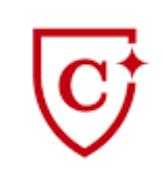
Interview review with SoBTH Dean, Dr. Maja Zelihic
In this exclusive interview, The Constellation had the privilege of speaking with Dr. Maja (Maya) Zelihic, the esteemed Dean of Capella University’s School of Business and Technology (SoBTH). Dr. Zelihic shares her insights into the evolving landscape of higher education, the innovative initiatives at SoBTH, and her vision for preparing students to thrive in today’s dynamic business and technology sectors.

The School of Business and Technology (SoBTH) and the Constellation staff are thrilled to welcome Dr Zelihic as our new Dean We are excited to have someone with such a rich and varied background in both professional and academic spheres leading our community Dr Zelihic’s experience includes serving as the Dean of the Forbes School of Business, where she made significant contributions to academic excellence and institutional growth Additionally, her influential role as a Fulbright Specialist has provided her with a global perspective that will no doubt shape her leadership at SoBTH
Beyond her academic and professional achievements, Dr Zelihic brings an added level of prestige to our institution through her appearance as a TED Talk speaker, where she shared her insights and expertise on mechanisms impacting perceptions. With her unique blend of experience, vision, and leadership, we are confident that Dr. Zelihic will inspire innovation, foster growth, and continue to elevate the reputation of our institution.
We asked Dr. Zelihic to join us for a brief conversation, as we’re eager to explore her goals, leadership style, and the direction she plans to take the School of Business and Technology. As she leads us into the future, we are excited to gain a deeper understanding of her vision for shaping the next generation of business and technology leaders.
Continued on page 2
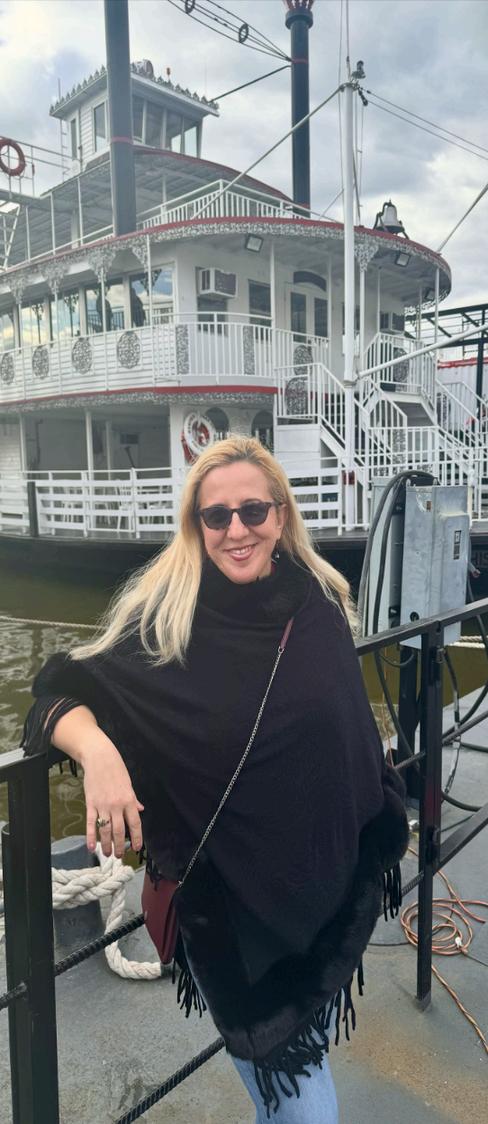
.
Interview review with
SoBTH Dean, Dr. Maja Zelihic
How do you plan to bring leadership to
the School of Business, Technology, and Healthcare?
Having led across multiple institutions and functions, I plan to work with the entire SoBTH team to apply a strategic, collaborative, and forward-thinking school leadership approach. After evaluating our current market presence and portfolio, I see untapped potential in certain areas. While the business, tech, and healthcare administration education markets are saturated, there is an opportunity for us to differentiate by broadening corporate partnerships and exploring additional partnership opportunities Strengthening these connections will enhance experiential learning, increase employer-sponsored education programs, and improve career outcomes for students In addition, we will focus on furthering academic quality by continuously integrating industry trends, technological advancements, and real-world applications into our curriculum Insights from corporate partners, advisory boards, and industry research will inform this
A key priority will be fostering a culture of innovation, encouraging faculty and students to engage in research, experiential learning, and interdisciplinary collaboration. Strengthening our industry partnerships will ensure that our programs are aligned with workforce demands and equip students with critical skills. Furthermore, we are launching a school-based thought leadership initiative with our SEI colleagues to share relevant content with corporate partners and raise awareness of the great work happening at SoBTH. Strengthening our alumni connections will be another priority. We will gather feedback on their experiences and stay engaged with them as they advance in their industries, ensuring continuous quality assurance and program improvement
How will you ensure student success and retention in an increasingly competitive education market?
To improve student enrollment and retention, we need to create an environment that fosters both academic excellence and professional development. This includes strengthening student support services, career counseling, and mentorship programs (including peer mentors) to provide a well-rounded experience. We will also explore new program offerings and course delivery models that align with industry needs and student expectations.
Additionally, there is an opportunity to engage alumni in mentorship and networking initiatives to help students build meaningful professional connections. Creating real-world opportunities through incubators and project-based experiences will be crucial for preparing students for the workforce. I am particularly impressed with the MBA capstone program, where students collaborate with real companies on comprehensive research projects. Expanding these types of experiential learning opportunities across programs will be a priority Our approach will also include continuous assessments of existing systems to determine if refinements or reworks are needed While many structures are effective, incremental improvements can optimize student outcomes By focusing on both academic rigor and student well-being, we can ensure that students not only enroll but thrive and graduate with strong career prospects
How do you plan to foster a culture of collaboration among faculty, students, and industry partners?
Collaboration is essential for academic and institutional success. We are working on creating a platform for faculty to engage in research with their colleagues across schools and to collaborate with students. Encouraging interdisciplinary research and teaching will create a more dynamic learning environment and strengthen our academic community. Additionally, having completed three Fulbright projects, I would like to assist faculty members with a passion for international research in joining the Fulbright roster and working on their own projects Expanding these opportunities will enhance our institution’s global engagement and create meaningful research collaborations To further support collaboration, we will establish structured networking events, speaker series, and project-based partnerships with industry to create more experiential learning opportunities Faculty will also receive professional development, research resources, and recognition programs to ensure they feel supported and motivated Maintaining open communication channels, such as faculty advisory committees and regular feedback sessions, will ensure a collaborative and welcoming academic environment.
What are the biggest challenges facing the School of Business, Technology, and Healthcare, and how do you plan to address them?
A key challenge is staying ahead of technological advancements and industry shifts in business, technology, and healthcare while differentiating our offerings from other educational providers in the market. To address this, we must continuously align our programs with emerging trends, integrate realworld case studies, and equip students with critical problem-solving and technological skills.
Another challenge is increasing enrollment in a competitive education market We will address this by refining our market positioning, expanding corporate partnerships, and strengthening student engagement strategies We launched a new program this year in Computer Science, and we plan to restage at least one more to address market demands Ensuring the success of these launches and restaging efforts is crucial. Additionally, ensuring that faculty and staff feel supported and empowered is essential. By having a strong academic culture, offering clear growth opportunities, and maintaining an open-door leadership approach, we will create an environment where innovation and student success can thrive.
. How do you measure the success of your initiatives and ensure alignment with long-term institutional goals?
Key performance indicators will include:
Student retention and graduation rates
Employment outcomes and employer satisfaction with graduates
· Faculty research contributions and engagement
· Student participation in experiential learning opportunities
· Institutional growth in enrollment, market presence, and program offerings
· Regular program evaluations, industry feedback, and benchmarking against peer institutions will help refine our strategies and maintain a competitive edge
By maintaining a data-driven approach and continuously assessing our progress, we can ensure that our initiatives align with the institution’s longterm goals while fostering sustainable growth and creating a lasting impact on students, faculty, and industry partners.
In the 5 Edition of the Constellation th Interview SoBTH Dean, Dr. Maja Zelihic………………….... ..........................................Interviewer, Dr. Al Gorriaran
A Spaceman Lands at Capella………………………....……………….by Dr. Al Gorriaran
Myths and Truths About Data and Analytics……...…… by Dr. Rebecca Snarski and Dr. Jama Bradley
Capella Star of Excellence for Fearless Leadership Dr. Charlene Dunfee…by Constellation Staff Writer
Constellation Staff Writer Disabilities We Cannot See ........ ..by Dr. Al Gorriaran
Enhancing Faculty Engagement: The Role of the Faculty Advisory Board at SoBTH by Dr Henry Weber
MBA Capstone Course Earns Prestigious Recognition for Excellence in Experiential Learning by Dr Chris Fichera
The Constellation: Reflecting on Two Years of Impact and Looking Ahead Constellation Team
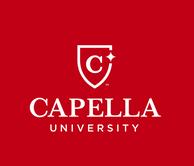

A Spaceman Lands at Capella
Many of us are familiar with Dr. Chris Fichera, our innovative leader in the practice of video and podcasts at Capella Space. Chris's journey to Capella is a fascinating one, shaped by his unique background in both the military and space sectors He was born into a family of educators, with his father being a secondary school teacher and his mother a music educator. Growing up in an environment steeped in academic values, Chris naturally gravitated toward an academic career.
Upon graduating from high school, Chris enlisted in the United States Air Force, where he served for over a decade During his time in the Air Force, he was part of the Electronic Countermeasures Community, working with the F-15 Eagle. His dedication to service extended beyond his military duties: Chris volunteered to help train fellow airmen for the Air Force's objective testing program. His military service took him to key operations in the Gulf, where he served in both Desert Shield (1990) and Desert Storm (1991).
After his honorable discharge from the Air Force in 1992, Chris transitioned to a highly successful career at NASA, where he took on a range of technical roles. He supported satellite ground stations and trained ground controllers on how to communicate with deployed satellites His work involved conducting training sessions for both ground and flight controllers, ensuring they were prepared for certification testing. In 1992, Chris also returned to Saudi Arabia as a civilian contractor, where he supported ground operations for space communications. This time, he brought his family with him, and they lived in Khamis Mushayt, on the Red Sea coast of the Kingdom of Saudi Arabia, for four years
This overseas experience proved to be both exciting and enriching, allowing Chris and his family to travel to several countries, including Greece, Turkey, Egypt, and Kenya. These travels offered them the chance to explore different cultures, deepening their understanding of the world and their place in it.
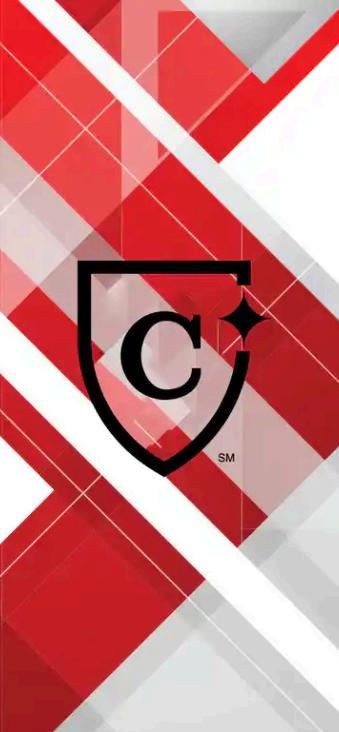
Returning to the United States in 1997, Chris joined the Johnson Space Center in New Mexico, where he began his work supporting the maintenance of satellite ground stations in Hawaii and Guam. From 1998 to 2006, he played a pivotal role in supporting Space Shuttle and International Space Station (ISS) launches. His work took him to numerous locations, including the Johnson Space Center in Houston, Diego Garcia in the Indian Ocean, and Kwajalein Atoll in the Marshall Islands.
From 2007 to 2011, Chris served as a technology project manager for NASA, leading teams tasked with installing, maintaining, and updating satellite ground stations in strategic locations like Hawaii, Guam, Kwajalein, Diego Garcia, and Greenland critical infrastructure for national security. Over the course of his career, Chris participated in more than 100 deployments to various locations, supporting NASA’s space operations
In 2011, Chris returned to the United States Air Force, this time in the space domain, marking a new chapter in his career His family moved to Colorado, where he worked in the rapidly evolving field of military space L work will continue to shape our community and beyond
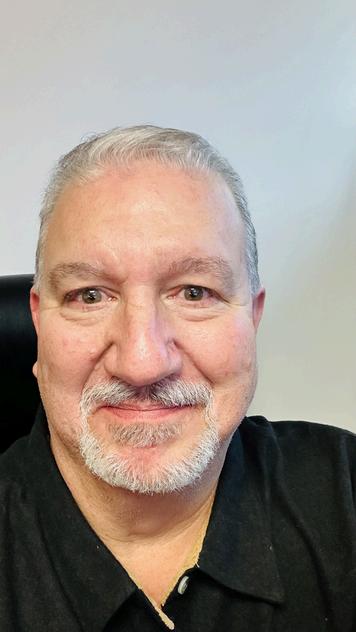
Like all faculty members at Capella, Chris’s educational journey is an important part of his story He earned an Associate Degree in Science from Saint Leo University (online), followed by a Bachelor of Science in Computer Information Systems (BSCIS) and an MBA from the Florida Institute of Technology (FIT) (online) He then pursued and earned a Doctorate in Business Administration (DBA) with a specialization in Project Management from Capella University.
We are incredibly proud to have Dr. Chris Fichera as a member of our faculty. His contributions have had a lasting impact on our school, and his expertise in video and podcasting has helped propel our work in new and exciting directions. As a "spaceman" in both his professional and educational endeavors, Chris’s journey continues to inspire us all, and we look forward to seeing the many ways his work will continue to shape our community.
by Dr Al Gorriaran


Myths and Truths About Data and Analytics
Have you ever felt lost when it comes to data? You know it's valuable for your students' future success, but diving into complex spreadsheets and statistics feels like a monumental task that is simply beyond you. Relax! You don't need a Ph.D. in data science to empower your students. Here's how to demystify data and encourage your students to embrace the numbers.
Myth Busted: Data is Not a Monster
Think of data as the raw ingredients of a delicious meal. By itself, a bag of flour might be confusing, but with the right skills and additional ingredients, you can create a masterpiece Here are some easy recipes to make data digestible:
Visual Feasts: Ditch the dry numbers and create charts, graphs, and dashboards Think colorful pie charts or sleek infographics – these turn data into an engaging, visual story Encourage your students to hunt down graphics and use them in their assignments
The Power of Storytelling: Data is a powerful storyteller Help your students translate numbers into interesting narratives that connect with audiences Imagine exploring customer satisfaction for a company Instead of just saying "numbers are good," tell a story about how satisfied customers are driving positive brand sentiment
AI to the Rescue: Use artificial intelligence as your friendly data assistant. Tools like generative AI can analyze data, summarize key points, and even create visualizations. Think of it as a sous-chef, prepping the ingredients while you focus on the learning experience.
Example in Action: Imagine wanting to explore employee reviews for Gibson guitars Here's how to use these tips:
· Data Source: Check out the website https://www indeed com/cmp/Gibson-Inc3/reviews
Working at Gibson Inc: 90 Reviews | Indeed com 90 reviews from Gibson Inc employees about Gibson Inc culture, salaries, benefits, work-life balance, management, job security, and more. www.indeed.com
·· It has lots of data, but don't worry about deciphering everything.
· Visualization Power: The website already provides graphs and charts that make the data clearer.
- AI Assistant: Head to your favorite AI tool and ask it to summarize customer satisfaction using the website link. You'll receive a clear, concise answer about how happy Gibson customers are, along with some key data points.
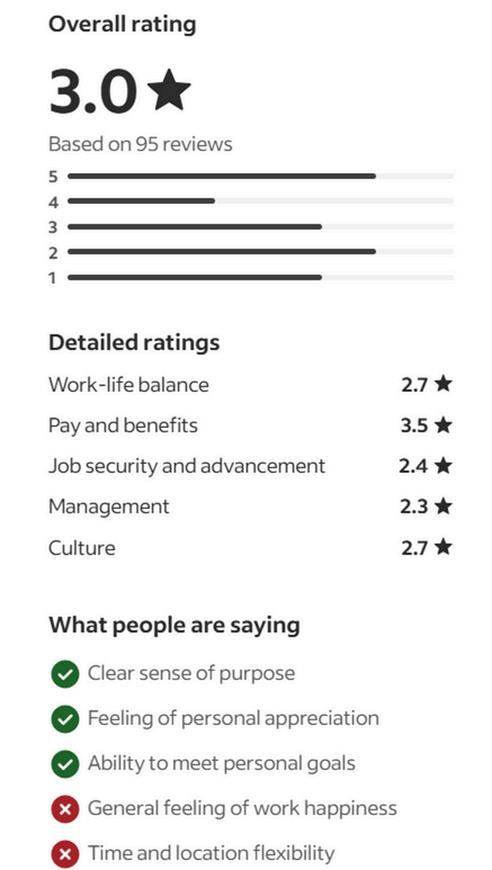
by Dr Rebecca Snarski and Dr Jama Bradley
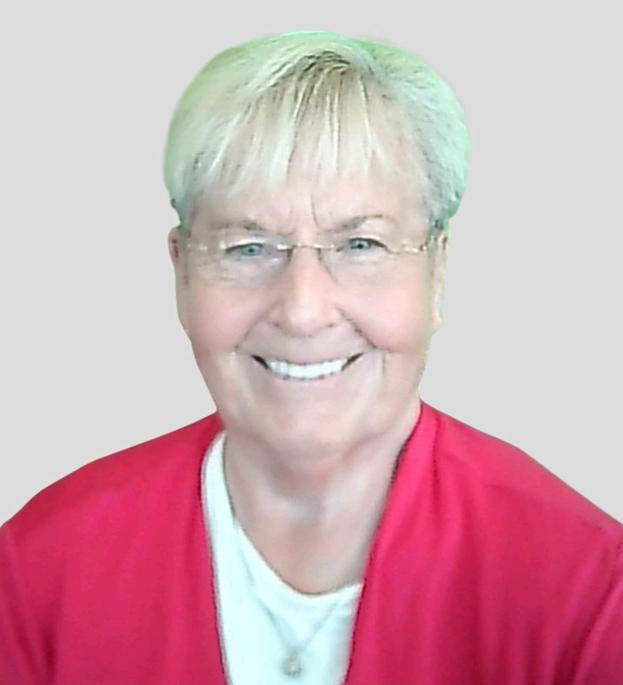
Capella Star of Excellence for Fearless Leadership – Dr.
Charlene Dunfee
Dr Charlene Dunfee was recently honored as a recipient of the 2024 Star of Excellence award
This prestigious recognition celebrates her exceptional talent, unwavering drive, and, most importantly, her spirit of fearless leadership. Leadership is one of the core values at our institution, and it plays a critical role in driving success across all levels. Dr. Dunfee’s remarkable ability to inspire, guide, and innovate has made a profound impact not only on her students but also on her colleagues and the broader academic community. Her leadership exemplifies the values we hold dear and serves as a model for all of us striving to make a difference in the world of higher education and beyond.
Dr Charlene G Dunfee is a highly respected academic leader and educator with a wealth of experience in higher education She is an expert in doctoral mentoring, curriculum development, and faculty leadership, currently serving as the Academic Doctoral Faculty Director at Capella University In this role, Dr Dunfee oversees faculty recruitment, training, mentoring, and the development of curriculum across the School of Business, Technology, and Healthcare. These are critical roles in the SoBTH faculty that drive organizational success.
With a PhD in Organizational Leadership from Capella University and a Doctor of Management (DM) in Organizational Management from the University of Phoenix, Dr. Dunfee has dedicated her career to advancing excellence in business and leadership education. Her passion for academia is reflected in her roles at various institutions, including Walden University, Ottawa University, Concordia University, and Park University. At these institutions, she has been instrumental in the development and accreditation of doctoral and MBA programs
A leader in curriculum innovation, Dr Dunfee played a key role in the creation of the MBA Organizational Behavior program at Park University She has also designed numerous graduate and undergraduate courses in areas such as research, statistics, and business strategy As a dedicated dissertation mentor, scientific merit reviewer, and committee member, she has guided many doctoral candidates through their research and academic journeys.
Constellation Staff Writer
Disabilities We Cannot See
For many people, disabilities are primarily perceived as visible, such as mobility, visual, or auditory impairments. While these can often be recognized quickly, many disabilities are not immediately apparent, yet they significantly impact those who experience them. Conditions like Attention Deficit Hyperactivity Disorder (ADHD) exhibit specific behavioral traits that can be identified with some familiarity. Educators and psychologists may also have the expertise to recognize hidden disabilities such as dyslexia, dyscalculia, and dysgraphia, which typically aren't observable in most contexts.
In traditional classroom environments, these disabilities often manifest in various ways, and, in the modern age, educators and school systems have made concerted efforts to support students facing invisible disabilities However, the average person may have limited knowledge and understanding of what it's like to live with these challenges While faculty and staff are accustomed to supporting learners with disabilities, there is still much that remains unexamined
Individuals with these disabilities experience life differently from those without them
Completing tasks often requires significantly more time and effort sometimes hours more than for their peers For example, dyscalculia can make navigating a mall a daunting challenge, as moving from one store to another may lead to disorientation Similarly, math tasks require additional support and effort, which can feel monumental for someone with dyscalculia While dyslexia is better understood, dysgraphia, a writing disability characterized by slow writing, spelling difficulties, and issues with organizing thoughts, is less familiar to most people. It's not uncommon for students to experience a combination of dyslexia, dyscalculia, and dysgraphia.
As faculty, we receive letters of accommodation and strive to support our students through their courses and programs. However, we may wonder about the extent of their struggles and whether we can do more. Although support systems for students with hidden disabilities have improved, challenges remain, particularly in certain subjects.
Recognizing the realities of hidden disabilities matters because it directly impacts how we teach, assess, and support our students. When we understand that many challenges students face are not visible, we can approach our work with greater empathy and intentionality. This awareness allows us to design more flexible learning environments, advocate for necessary resources, and communicate with students in ways that validate their experiences By acknowledging and addressing the unseen barriers that some students face, we move closer to creating an educational culture that is genuinely inclusive and supportive for all learners
by Dr Al Gorriaran

Enhancing Faculty Engagement: The Role of the Faculty Advisory Board at SoBTH
The School of Business, Technology, and Health Care Administration (SoBTH) established the Faculty Advisory Board (FAB) to serve as a vital representative body for its faculty members This board plays a crucial role in providing strategic guidance to the Associate Dean of SoBTH, ensuring that the collective voice of faculty is heard on matters that significantly impact their professional experience
The primary objective of the FAB is to enhance the faculty experience within the SoBTH community By offering insights and recommendations on new initiatives, emerging challenges, and program development, the FAB aims to contribute positively to the overall academic environment. The board convenes quarterly, fostering continuous engagement and feedback from faculty members, which helps shape the goals, services, and effectiveness of the SoBTH programs.
At its meeting, the FAB welcomed a highly qualified group of representatives, including Karen Coleman, Pamela Meares, Osama Morad, Thomas Neal, Jo-Rene Queensberry, Lori White, Tsun Chow, Kristine Ziola-Pardell, Chris Fichera,
Henry Weber, and Susan MacCready. Notably, JoRene, Lori, and Kristine will serve as Senior Advisors, continuing their invaluable contributions for another two years. The addition of five new members promises to enrich the board's discussions and initiatives
During the meeting, Associate Dean Cheryl Boncuore presented a comprehensive overview of the FAB’s mission using an informative PowerPoint presentation The discussion covered critical topics such as the requirements for re-accreditation, strategic goals, objectives, and measures, as well as the academic vision and a Strengths Weaknesses Opportunities and Threats (SWOT) analysis of the Business, Technology, and Health Care Administration programs. The meeting also highlighted the upcoming survey aimed at gathering faculty input on various strategic initiatives.
The FAB is committed to identifying and enhancing the strengths of SoBTH while also addressing areas of improvement. Associate Dean Boncuore emphasized the unique structure of the FAB, noting that unlike many traditional schools that limit advisory boards to full-time faculty, SoBTH recognizes the vital contributions of parttime and adjunct faculty This inclusive approach ensures that a broader range of perspectives informs decision-making, ultimately benefiting both faculty and students Faculty members are encouraged to submit any concerns, questions, or new teaching procedures they may have to the FAB, as their input plays a crucial role in fostering positive change As the FAB continues its journey, it looks forward to fostering a collaborative environment where faculty voices contribute to the continuous growth and success of the SoBTH community.
by Dr. Henry Weber

SoBTH Leads the Way!
MBA Capstone Course Earns Prestigious Recognition for Excellence in Experiential Learning
Our MBA Capstone course has once again proven the transformative power of experiential learning. This innovative course pairs MBA candidates with real-world companies, assigning them to teams of three or four. These teams work directly with founders, CEOs, and directors to address complex business challenges and capitalize on emerging opportunities.
I am excited to share that our program has recently received prestigious recognition from the non-profit organization Inform Your Community (IYC), which has named us their Partner of the Year. This honor highlights the significant contributions of our MBA Capstone Teams over the past three years.
Our partnership with IYC, led by the visionary Dr Stacey Kurylo, Founder and CEO, has been especially rewarding Based in New York City, IYC is committed to empowering communities through vital information and resources Our MBA Capstone Teams have played a pivotal role in advancing IYC’s mission by:
· Securing critical grant funding
· Identifying strategic new locations across the U S
· Conducting in-depth feasibility studies
· Developing targeted marketing strategies
· Creating a comprehensive Human Resource Kit
These efforts have not only strengthened IYC’s impact and reach, but they have also provided our MBA candidates with invaluable hands-on experience in solving real business challenges.
I am incredibly proud of our students' achievements and grateful for the opportunity to collaborate with such a dedicated and impactful organization. This recognition as Partner of the Year is a testament to the hard work, commitment, and positive impact of our MBA Capstone Teams.
by Dr. Chris Fichera

